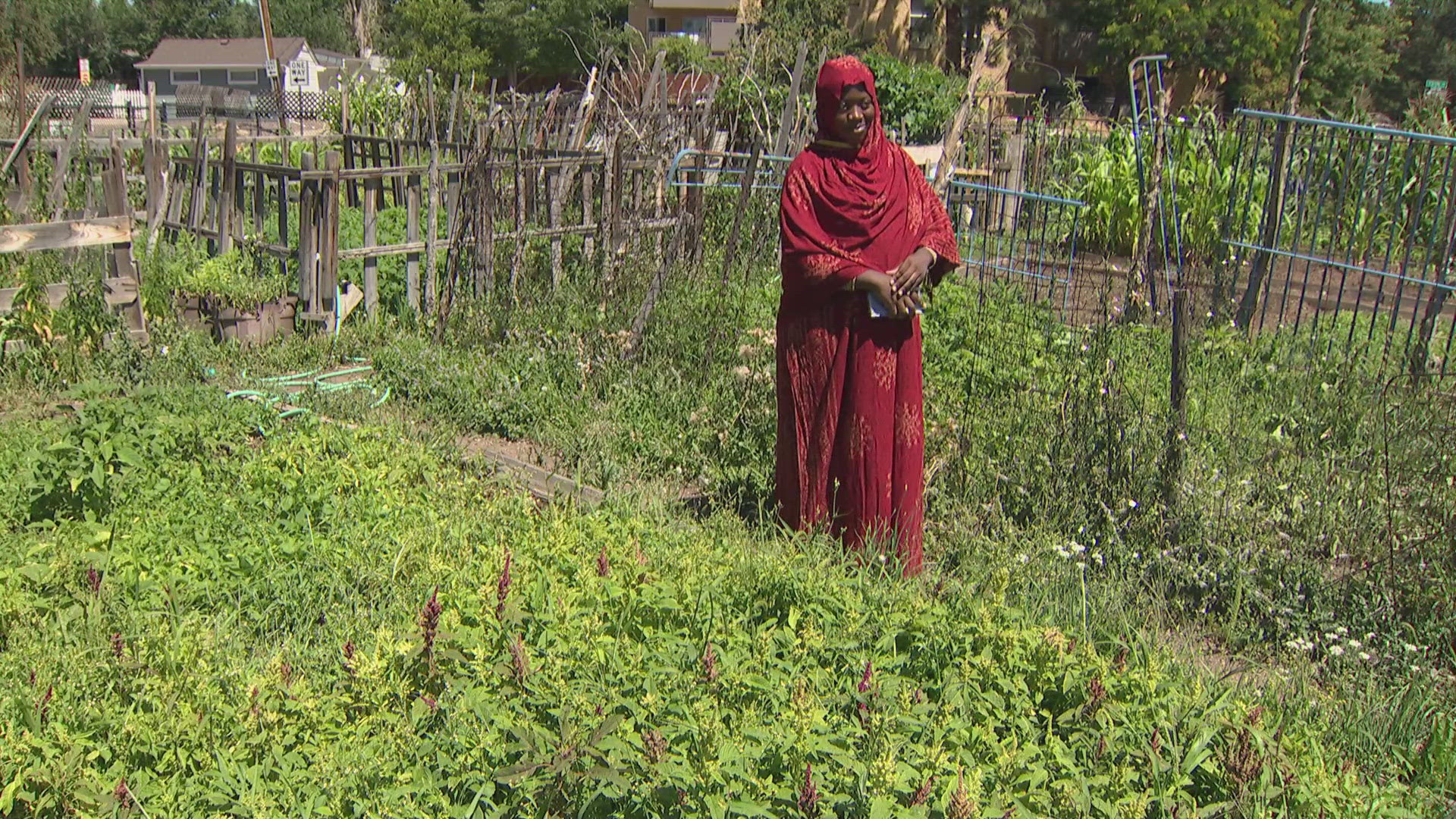DENVER — When Amina Isende moved to Colorado from the Democratic Republic of the Congo, she would often go to Asian-owned grocery stores to find ingredients she was familiar with. She could find certain ingredients, but it became costly.
Isende moved into an apartment with Mercy Housing, next to New Freedom Community Garden in Denver. When she learned that she could get her own gardening plot, she began growing the food instead. This year, she exclusively grew amaranth in her plot.
The garden is run by Denver Urban Gardens, and Isende received the seeds through the nonprofit's Culturally Inclusive Seeds program.
"A lot of people from my country, as Congelese Africans, we love this veggie," Isende said. "We used to buy it in the Chinese store, but it's very expensive. When we find the garden, we say, 'Oh, we can make it on our own,' and that this is easier for us."
With her four sons and another on the way, the plot also offers an opportunity for her children to grow and eat the food from their country of origin.
"They love it," Isende said. "They always run with the water [hose]. They love water."
New Freedom Garden, two blocks from Colfax Avenue in Denver's East Colfax neighborhood, offers a space to many immigrants who are relatively new to the country. The majority are from African or Asian countries including Congo, Rwanda, Kenya, Somalia, Burma and Thailand.
Isende has been in Colorado for the past six years. For the past three years, her family has lived in the East Colfax community. She is one of the hundreds of gardeners DUG provided with seeds as part of the Culturally Inclusive Seed program, designed to provide access to rare and specialty plant varieties with an emphasis on cultural inclusivity.
"The Culturally Inclusive Seed programs started in 2022, and the goal was to provide access to seed varieties at no cost to DUG gardeners that were difficult to find," said Shay Moon, Senior Manager of Food Access Programs at DUG.
The program offers free or reduced-cost supplies to community members.
"I think that food access is most meaningful when it includes foods that are familiar and desirable to you, no matter who you are. I don’t think it’s just about access to food generally, but it’s about food that you find exciting and nourishing. So this program intends to support this type of ancestral growing," Moon said. "I hope that it makes this place, this city, this country, more welcoming. I hope that it indicates that these spaces are meant to be blank canvasses for community members to create what they want."
DUG distributed around 900 seed packets with specialty varieties this year alone, across 40 different gardens.

